Information about the LMT Project No. S-MIP-24-18
MIESTOlabas is a project funded by the Research Council of Lithuania titled “Co-creation of Urban Green Space Ecosystem Service Value in a Living Lab” (No. S-MIP-24-18). The scientific idea of the project is to investigate the phenomenon of co-creating the value of urban green space ecosystem services by applying the Living Lab methodology to achieve more sustainable urban green infrastructure solutions.
Project future vision: The Botanical Garden of Vilnius University Šiauliai Academy operates as a Living Lab for sustainable urban development solutions.
Project duration: 1 September 2024 – 31 March 2027. The project is implemented by researchers and students of the Institute of Regional Development at Vilnius University Šiauliai Academy, representing both social and natural sciences.
Project aim: To conceptualize the co-creation processes of urban green space ecosystem service value for sustainable urban green space development solutions by applying the Living Lab methodology.
Project activities:
- Exploratory research (analysis of municipal administration documents; interviews with a municipal administration specialist and a representative of an active citizen environmental group);
- A questionnaire survey of city residents to determine the perceived value of ecosystem services provided by public urban green spaces;
- Living Lab sessions in which unm oderated group discussions and observation methods are used to analyse co-creation processes of ecosystem service value in urban green spaces;
- Interviews with representatives of Living Lab target groups to gather their reflections on the value co-creation processes of ecosystem services.
Project contribution to scientific development:
- Advancement of interdisciplinary research approaches by integrating social and natural science knowledge and methodologies to explore complex phenomena and problems;
- Deepening and expanding management science knowledge on value co-creation processes by studying co-creation in the context of complex systems theory and applying the Living Lab methodological approach;
- The Living Lab methodology developed for urban green space co-creation will broaden the existing spectrum of methodological knowledge on Living Labs.
Project team: Project leader – Assoc. Prof. Dr. Milda DamkuvienėProject researchers: Sigitas Balčiūnas, Assoc. Prof. Dr. Jurgita Joniškienė, Assoc. Prof. Dr. Martynas Kazlauskas, Assoc. Prof. Dr. Evandželina Petukienė, Prof. Assoc. Dr. Ingrida Šaulienė, Assoc. Prof. Dr. Jūratė Valuckienėand VU ŠA Master’s students: Darija Bučienė, Milda Zubavičienė, Kipras Merkelis, Sharmishtha Roy.
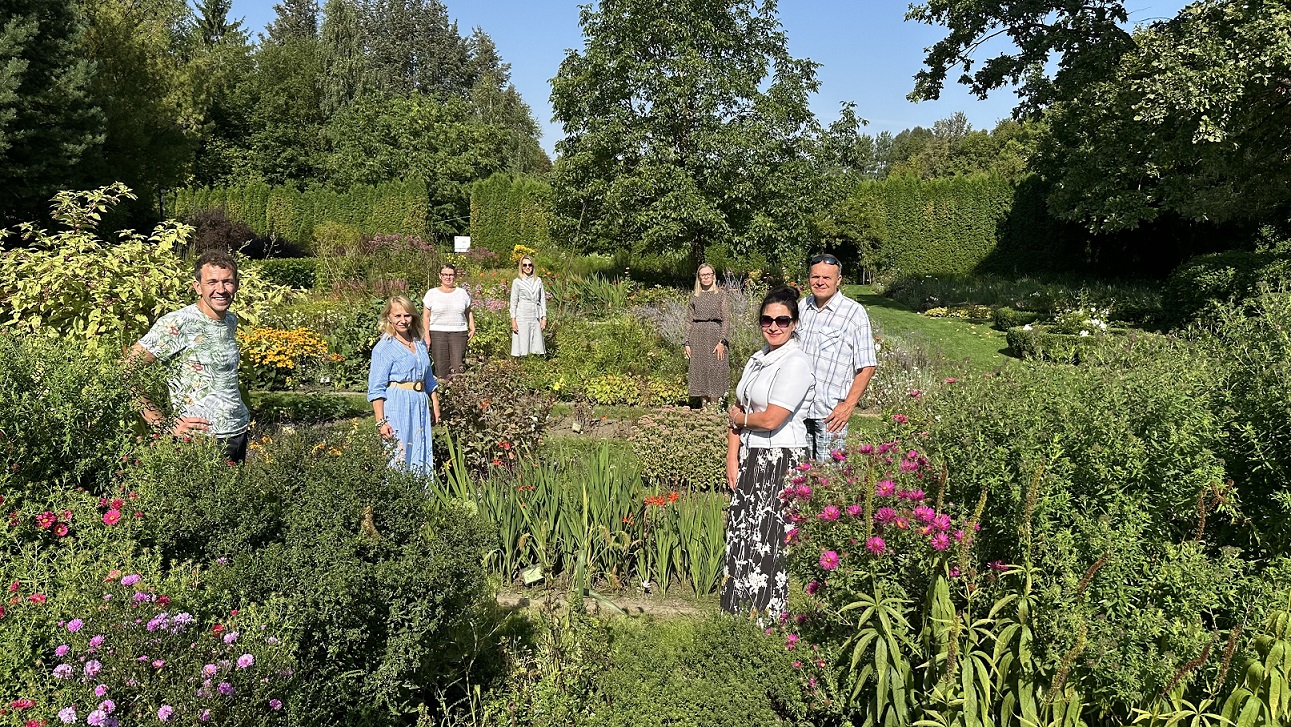
Dissemination of project results
Žinių Radijas Broadcast “Ekspertai pataria”
On 31 October 2025, in the Žinių Radijas programme “Ekspertai pataria”, the project leader Assoc. Prof. Dr. M. Damkuvienė and team member Assoc. Prof. Dr. M. Kazlauskas presented the Living Lab methodology as an approach for addressing urban park development challenges, as well as the results of the Šiauliai residents’ survey. Key insights shared in the broadcast:
- Over 80% of surveyed Šiauliai residents stated that the city feels close and personal to them.
- Residents indicated that preserving the city’s parks for future generations is important.
- Around 40% of respondents would be willing to take part in co-creation initiatives aimed at enhancing urban green spaces.
- As many as 74% believe that such participation could be a pleasant and engaging activity. The most motivating factor for getting involved would be encouragement and active participation from family members or friends.
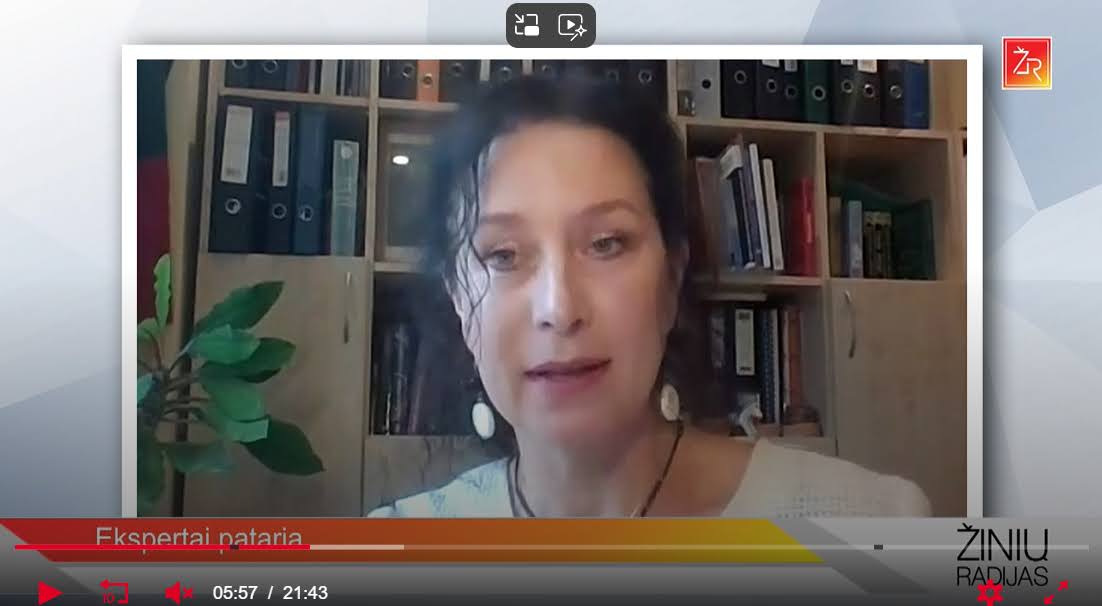
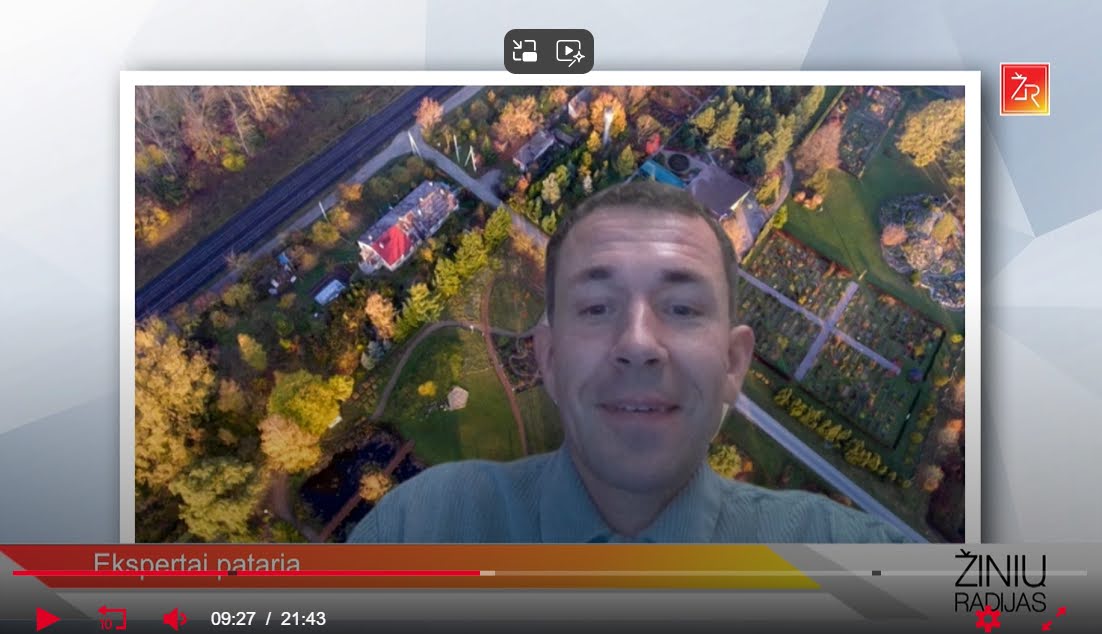
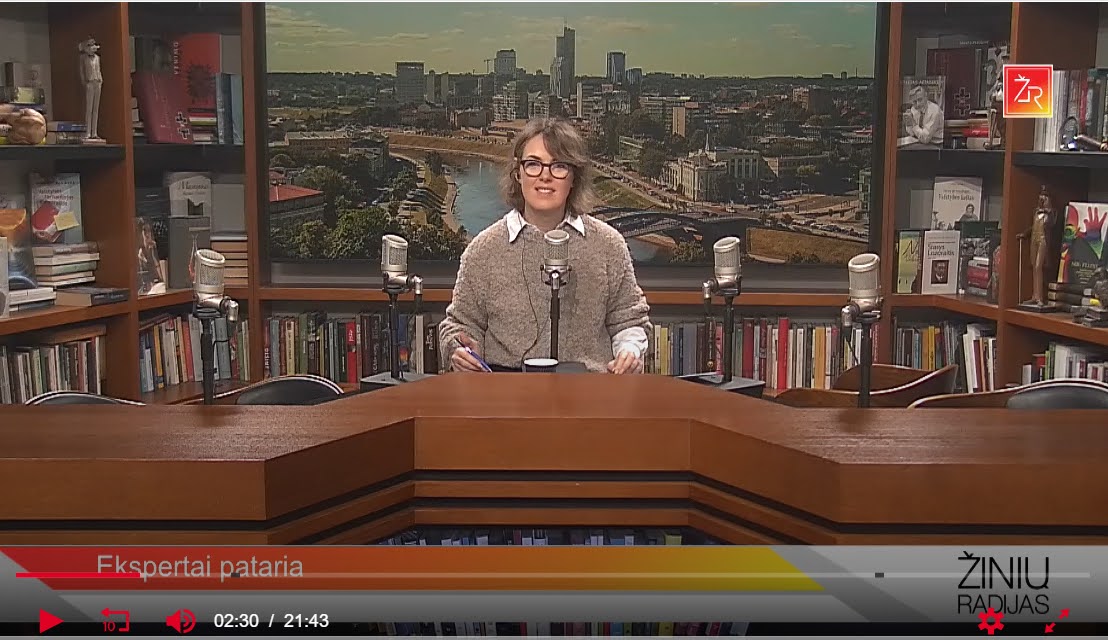
CONFERENCE “ACTIVE CITIZEN – STRONG STATE 2025”
On 9 October 2025, during the conference of community representatives organised by the Ministry of the Interior of the Republic of Lithuania in Nemenčinė, the project leader Assoc. Prof. Dr. M. Damkuvienė and researchers Assoc. Prof. Dr. M. Kazlauskas and Assoc. Prof. Dr. J. Joniškienė participated in the event.
The MIESTOlabas team delivered a presentation titled “Citizens as Creators: Living Labs for the Future of Green Spaces” and took part in a panel discussion.
The idea presented by the researchers — that the Living Lab methodology can engage and empower local communities by serving as a practical community-based innovation environment in which people become co-creators, collaboratively generating, testing, and evaluating new ideas through open, participatory, and experimental learning — received notable interest and support from the audience. Participants expressed encouragement for continuing the work and seeking synergy across different sectors.
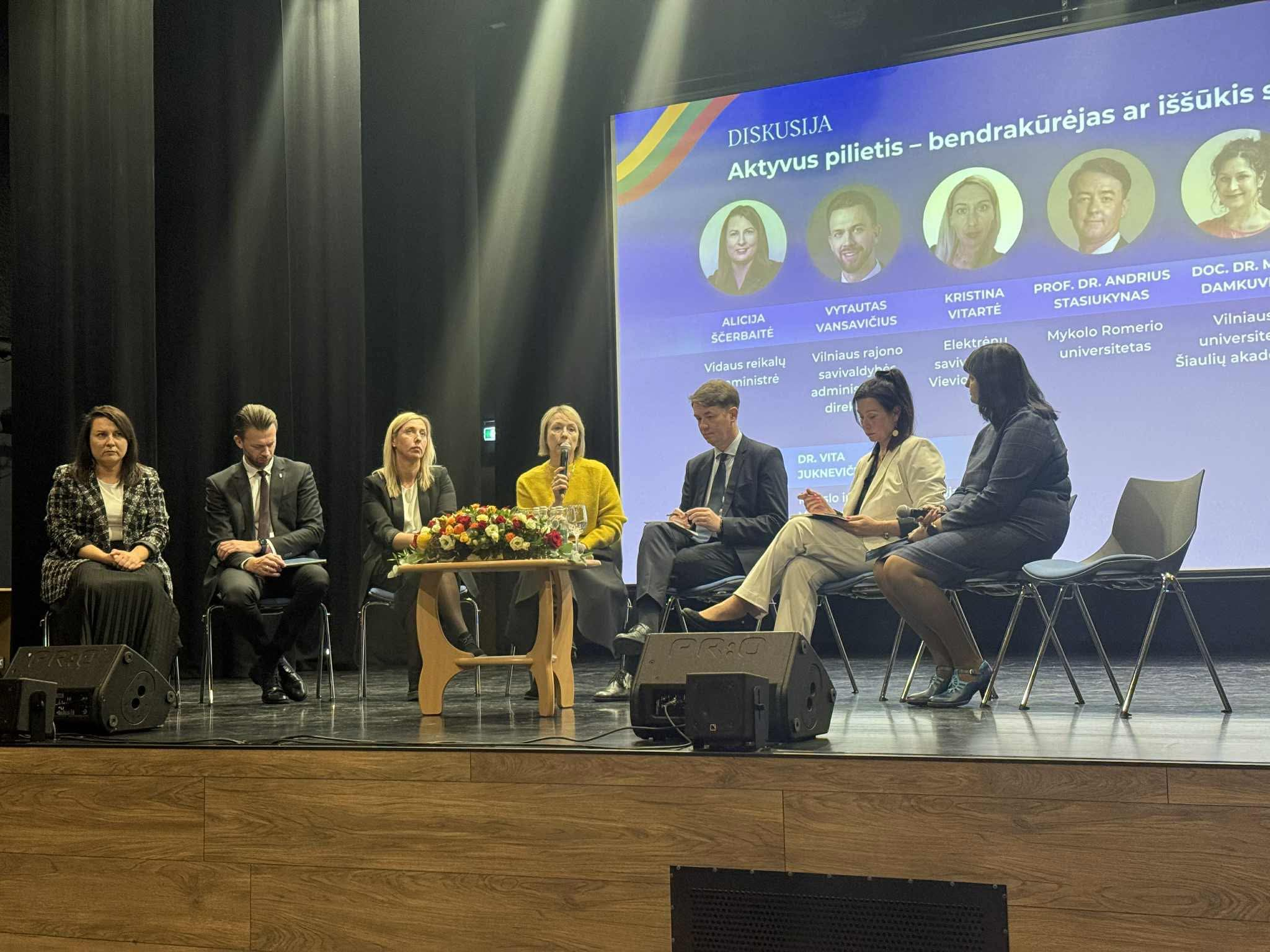
“THE EVOLUTION OF THE ROLE of the STATE in the 21st CENTURY: NATIONAL AND INTERNATIONAL CONTEXT”
On 3 October 2025, Vilnius University Šiauliai Academy hosted the 18th Jonas Pranas Aleksas International Interdisciplinary Scientific Conference “The Evolution of the Role of the State in the 21st Century: National and International Context.”
The main theme of the conference was “Data and Their Impact: Evidence-Based Policy Making for Smart and Sustainable Regional Development.”
Assoc. Prof. Dr. E. Petukienė delivered a presentation titled “Interrelations Between Ecosystem Service Value, Environmental Worldviews, and the Intention to Engage in Co-Creation.”
The findings from the survey of Šiauliai city residents revealed that:
- Both ecocentric and anthropocentric environmental worldviews significantly influence the perceived value of park ecosystem services and are important factors shaping the potential for co-creation.
- Perceived value of ecosystem services emerged as the strongest predictor of co-creation intentions, suggesting that co-creation initiatives are most likely to succeed when park visitors clearly understand the services and benefits provided by natural areas.
- Anthropocentric attitudes also significantly influence perceived service value. This indicates that people oriented toward the utilitarian value of nature may still acknowledge the importance of ecosystem services, albeit from a different perspective.
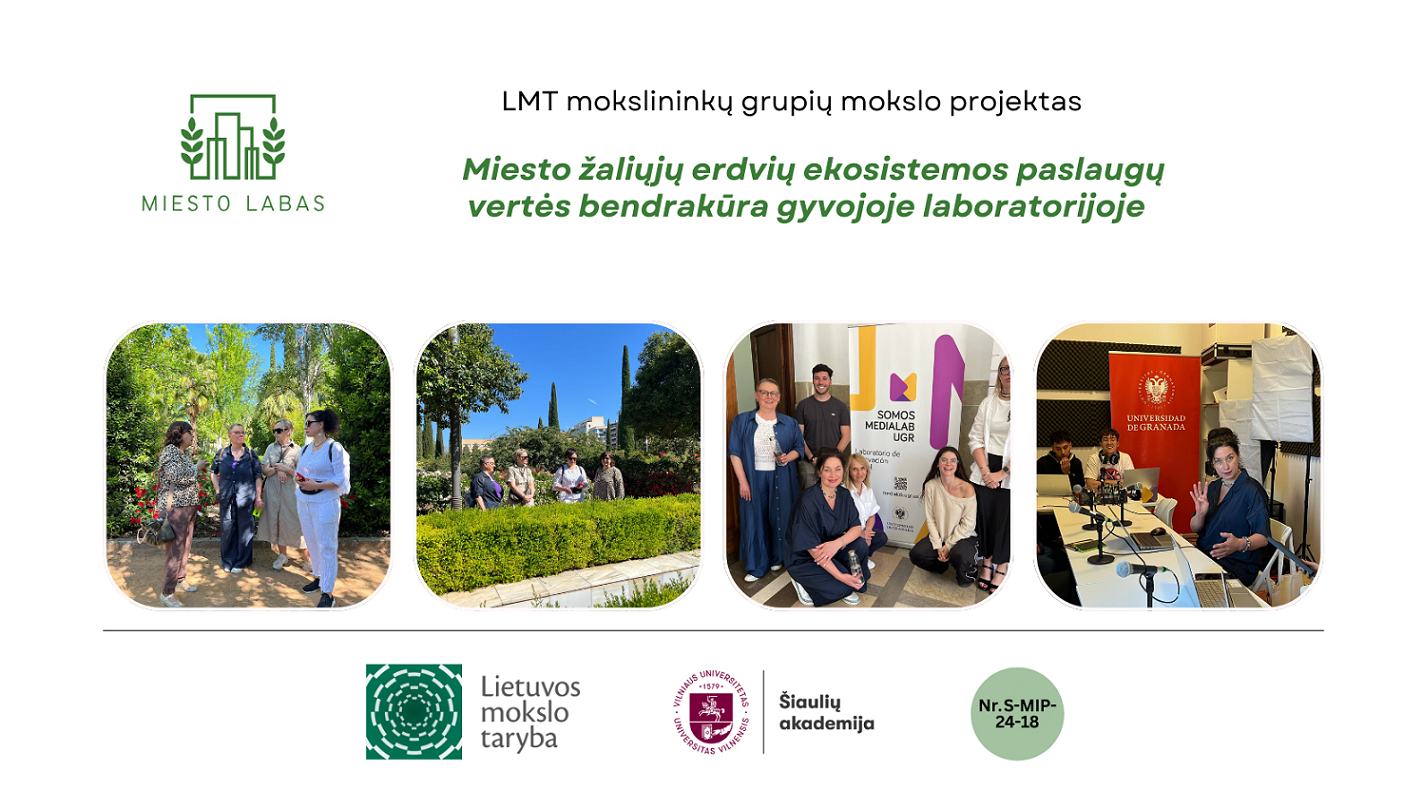
FIRST PUBLIC PRESENTATION OF THE ŠIAULIAI CITY RESIDENTS’ SURVEY RESULTS
On 12 September 2025, members of the project team took part in the 14th scientific–practical conference “Economics and Business: Regional Problems and Opportunities 2025”, dedicated to the celebration of the 789th anniversary of Šiauliai city.
Team member Assoc. Prof. Dr. J. Valuckienė delivered a presentation titled “Interaction Between Nature and People: How Do Šiauliai Residents Perceive the Ecosystem Services of Urban Parks?”, in which the results of the Šiauliai residents’ survey were shared publicly for the first time.
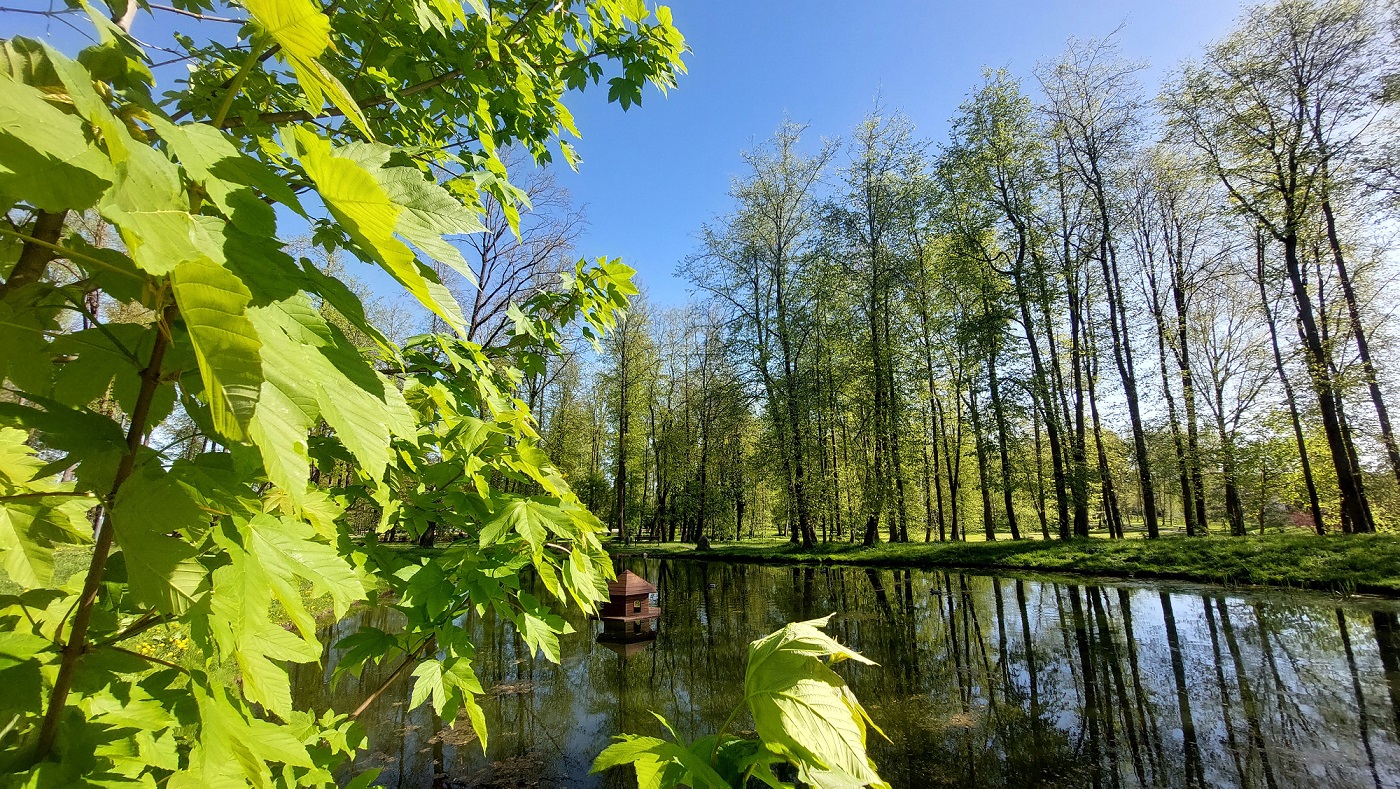
Living Lab networking
MIESTOlabas – Participant of the European Network of Living Labs (ENoLL) Days From 25 to 27 September 2024, the MIESTOlabas project leader Assoc. Prof. Dr. M. Damkuvienė took part in the European Network of Living Labs (ENoLL) event “Open Living Lab Days” in Timișoara, Romania.
The event’s theme — “The Power of Living Labs: Harnessing Public Participation for Systemic Change and Real Impact” — attracted more than 480 representatives of Living Labs from around the world. Participation in the event provided the following opportunities:
- Professional development: learning from best practices in Living Lab implementation and gaining insights into the latest trends in the field.
- Strengthening networking: establishing contacts and finding partners for future projects, especially in areas related to citizen engagement challenges.
- Engagement in the international Living Lab community: taking part in scientific sessions, workshops, and discussions while representing Lithuania’s Living Lab community.
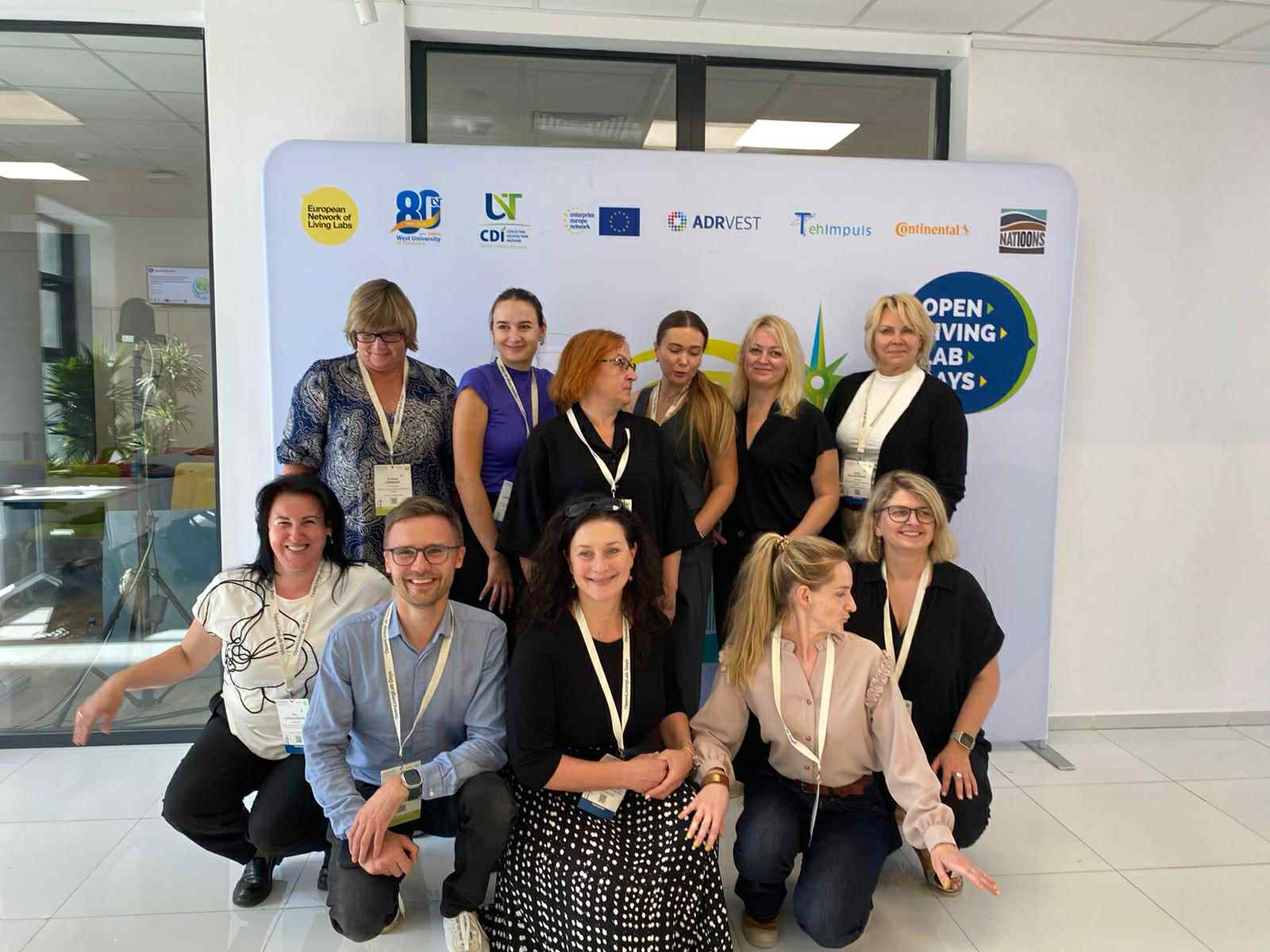
INTERNATIONAL SCIENTIFIC CONFERENCE “LIVING LABS: OPENING INNOVATION ECOSYSTEMS FOR CO-CREATION AND IMPACT”
On 27 May 2025, the international scientific conference “Living Labs: Opening Innovation Ecosystems for Co-creation and Impact” took place at the Lithuanian University of Health Sciences in Kaunas, organised by LLLNet (the Lithuanian National Living Labs Network). The project leader, Assoc. Prof. Dr. M. Damkuvienė, delivered a presentation titled “Evidence-Based Living Laboratory in the Context of Urban Green Space Co-Development: A Perceived Ecosystem Service Value Approach.”
The purpose of the presentation was to introduce LLLNet members to the MIESTOlabas project concept and the first steps in applying an evidence-based Living Lab method for the co-creation of urban green spaces, with a particular focus on perceived ecosystem service value as a foundation for decision-making and participation in co-creation.
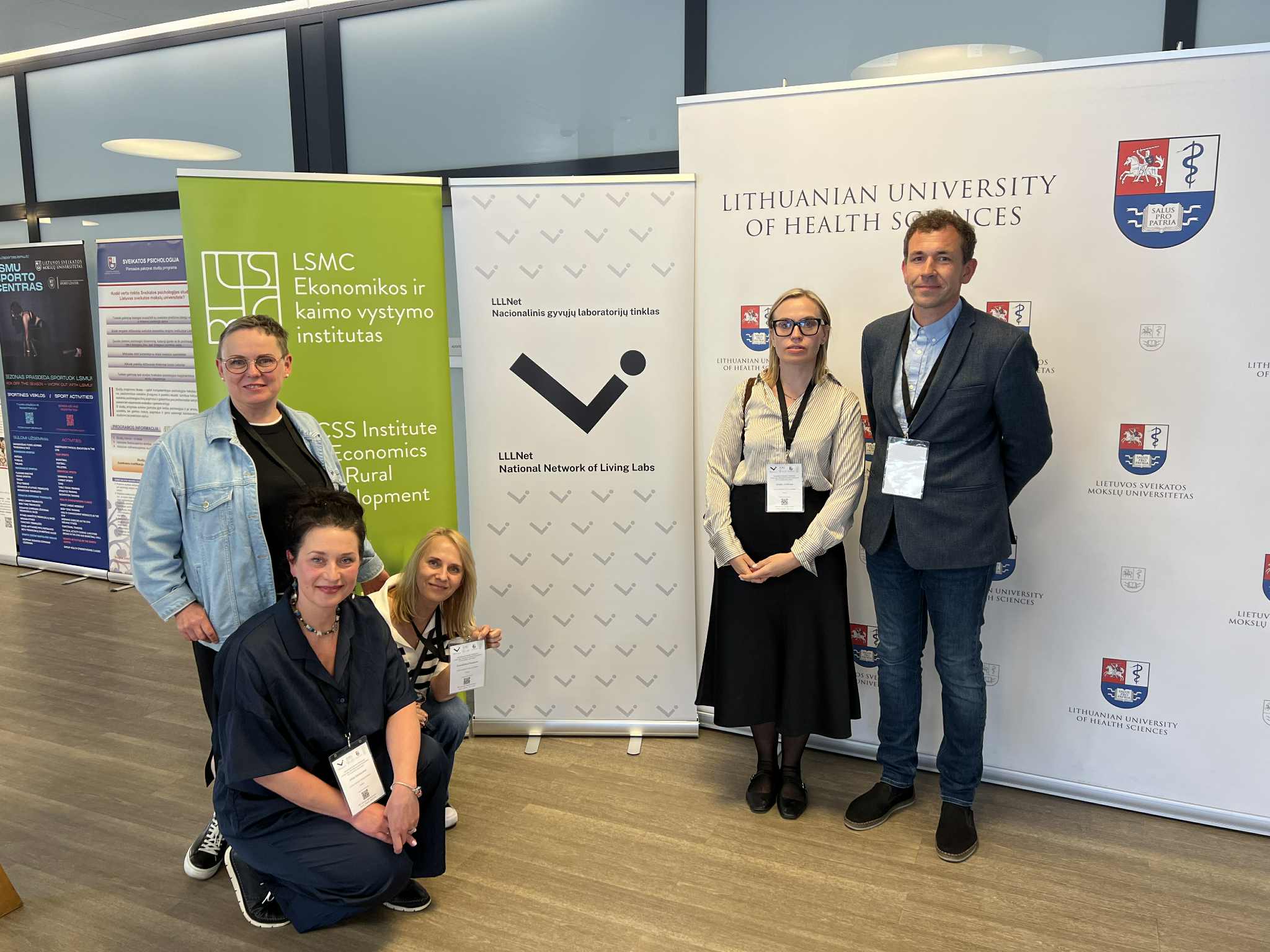
INTERNSHIP AT THE UNIVERSITY OF GRANADA, SPAIN
From 19 to 22 May 2025, the project leader Assoc. Prof. Dr. M. Damkuvienė and researchers Assoc. Prof. Dr. J. Valuckienė, Assoc. Prof. Dr. E. Petukienė, and Assoc. Prof. Dr. J. Joniškienė completed an internship at the University of Granada (Universidad de Granada, UGR) in Spain. The aim of the internship was to deepen academic and methodological knowledge related to the Living Lab methodology.
The University of Granada has extensive experience in implementing projects that integrate biodiversity, urban ecology, climate change, and innovation research. Together with UGR researchers whose expertise includes organising and managing Living Labs, the team discussed success factors and challenges encountered in projects such as “PRE-GREENMITIGATION,” “SMART ECO-MOUNTAINS,” and “SOMOS MEDIALAB UGR.”
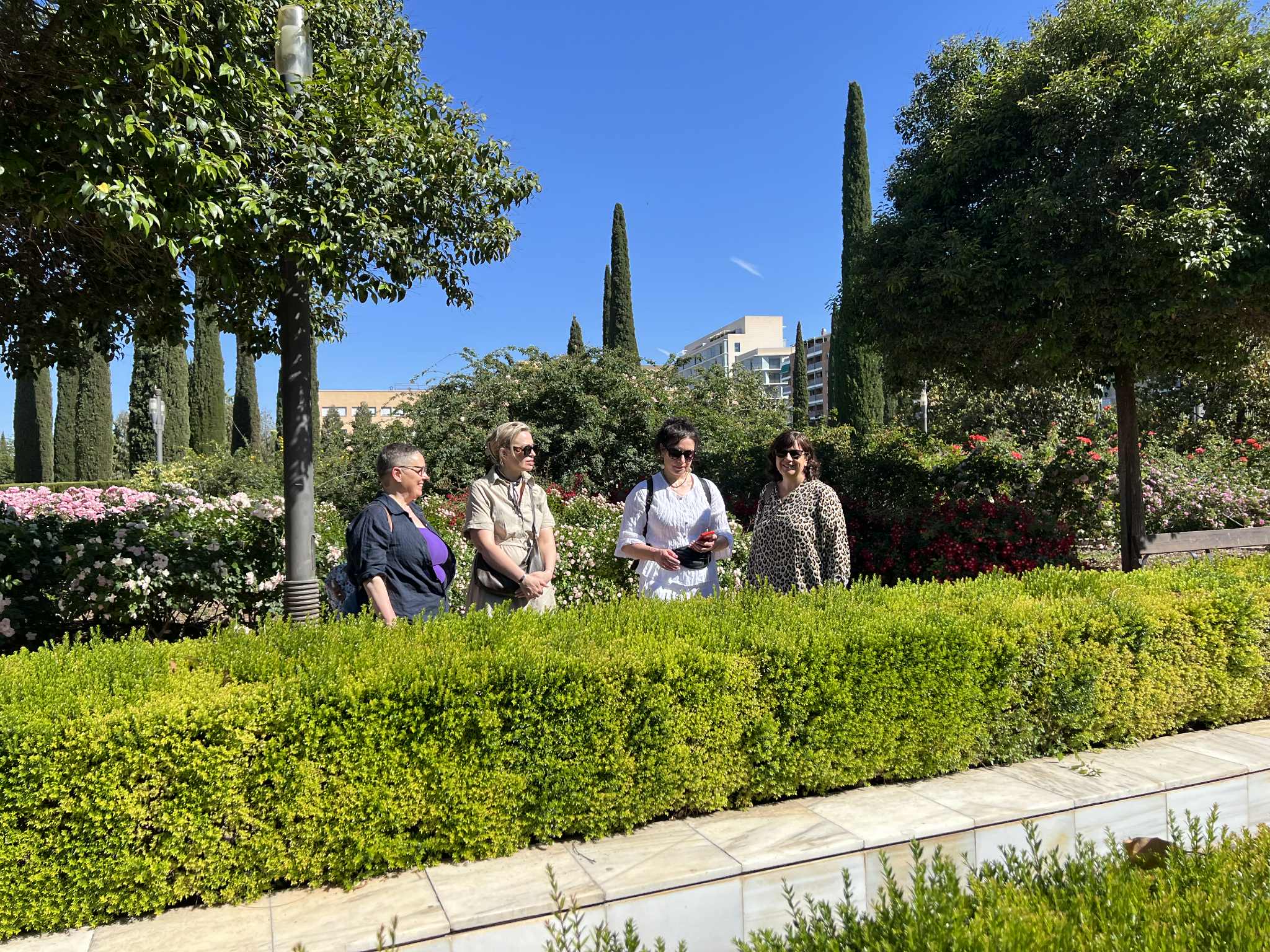
MIESTOlabas in the National Living Lab Network
In February 2025, the MIESTOlabas research team became a member of LLLNet – the National Living Labs Network.
LLLNet brings together Living Labs – open innovation ecosystems where science, business, and society work collaboratively.
Membership in the network provides opportunities to:
- participate in national events and activities related to environmental protection, urban development, and community engagement;
- expand competencies and apply research results in practice;
- build closer connections with other Lithuanian organisations, municipalities, and communities;
- share experience on how to successfully integrate social and natural science perspectives in urban planning;
- contribute to the growth of Lithuania’s innovation ecosystems by promoting collaboration and openness.
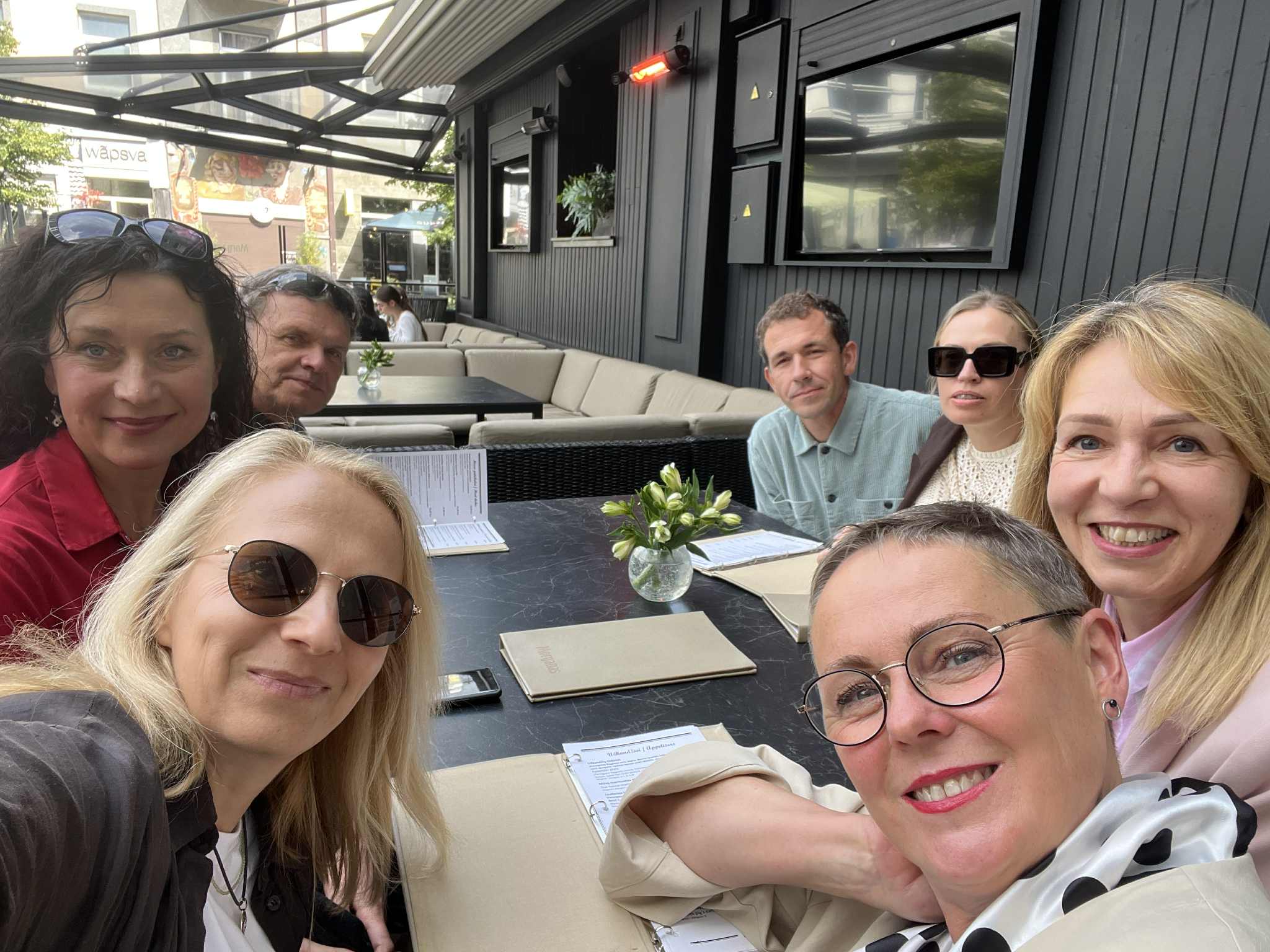
Cooperation with Local Authorities
Collaboration with Local Government DISCUSSION “STRENGTHENING REGIONAL AND LOCAL GOVERNANCE THROUGH SCIENCE AND INNOVATION”
On 8 November 2024, the project leader Assoc. Prof. Dr. M. Damkuvienė took part in the discussion “Strengthening Regional and Local Governance through Science and Innovation.” The discussion was moderated by project team member Dr. J. Joniškienė.
This event at Vilnius University Šiauliai Academy brought together representatives from various sectors — from the Network of Science and Innovation Advisors in ministries to local government officials.
The discussion focused on the importance of communication and trust between different institutions.
M. Damkuvienė presented the MIESTOlabas project as an example of how scientific research can support local government in making evidence-based decisions related to urban green spaces.
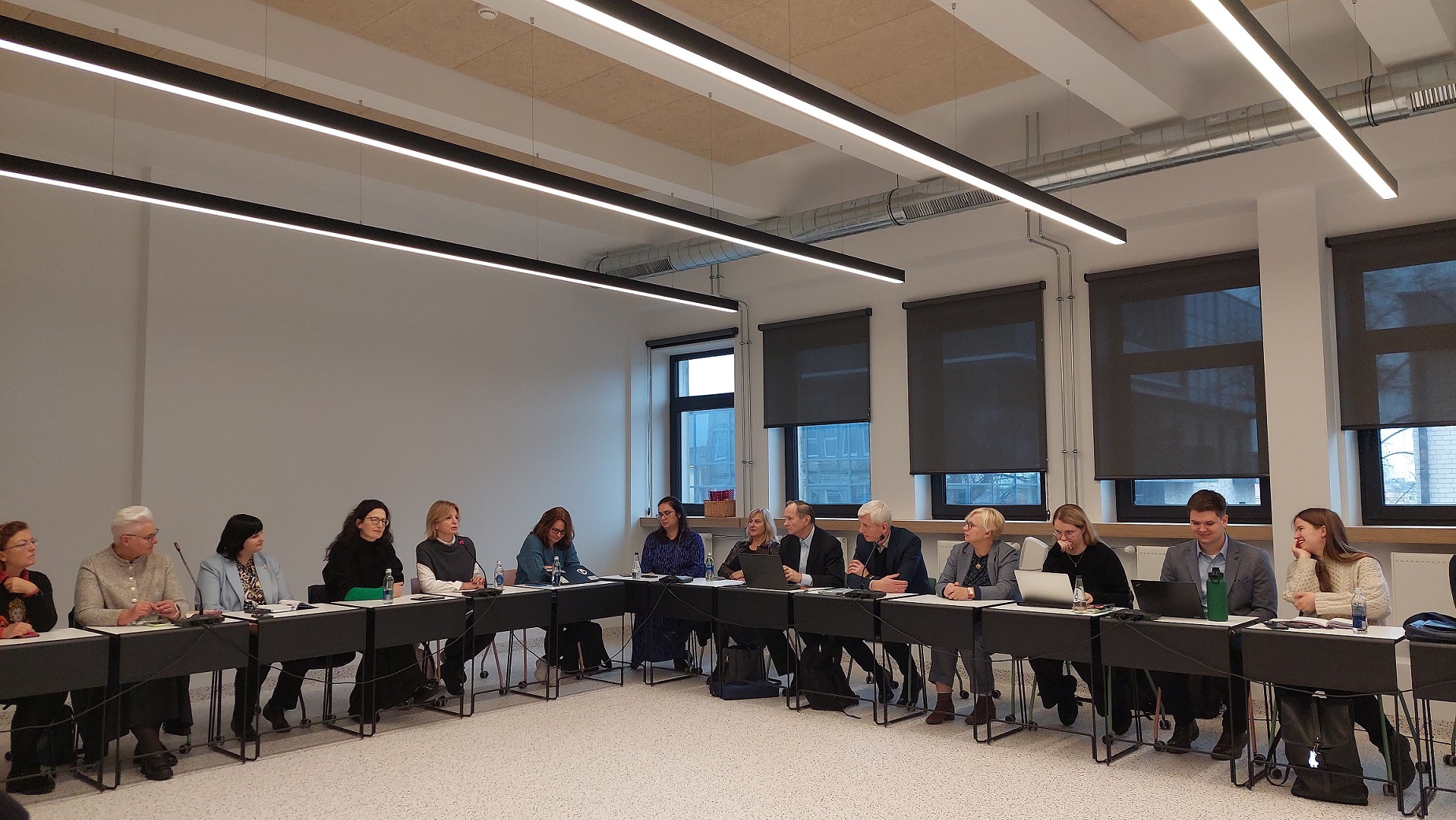
MEETING WITH REPRESENTATIVES OF ŠIAULIAI CITY MUNICIPALITY
On 24 October 2024, the project team met with representatives of Šiauliai City Municipality to discuss the implementation of the project “Co-creation of Urban Green Space Ecosystem Service Value in a Living Lab.”
During the meeting, the team and municipal representatives discussed prospects for cooperation, the selection of a suitable urban green space for project implementation, and the involvement of municipal stakeholders in different stages of the project.
